In the latest edition of our Unlocking Success series, we look at the benefits of learning new skills.
The practice of upskilling, which involves training employees to assume more advanced roles within an organisation, is gaining traction among companies. This growing interest is fuelled by the current competitive talent market, where either a shortage of skilled workers or increased demand for specific skills prompts employers to take the initiative in building the talent pool they require.
According to a 2019 Allegis Group Cultivating Skills survey of human resources decision-makers:
- 93% believe that it is the employer's responsibility to facilitate their workforce in acquiring new skills.
- 90% are exploring novel approaches to developing critical skills within their workforce.
- 86% anticipate an increase in their budget for training, learning, and development over the next two years.
A comprehensive training strategy offers employers the following benefits:
Addressing the Immediate Need for Skilled Employees:
Companies are upskilling existing employees through a concept called "skill adjacencies," where they assess a person's current skills and identify promising career paths requiring minimal retraining investments. This proactive approach enables employers to prioritise specific skills, set a rapid training pace, demonstrate appreciation for current employees, and contribute to the company's growth potential.
Preparing for a Future Workplace:
Recognising the evolving nature of work, companies like Amazon are investing significantly in upskilling their workforce for emerging technologies. The future workplace demands skills in working with automated systems, and employees need to adapt to platforms requiring digital proficiency. Embracing a "build, not buy" strategy involves preparing workers for roles demanding technical skills, creativity, interpersonal skills, adaptability, and continuous learning.
Increasing Retention by Meeting Employee Growth Demands:
Career development, encompassing consistent learning, skill enhancement, and advancement opportunities, significantly influences employee engagement. Employees express a willingness to stay longer with a company that invests in their learning journey. Research indicates that 82% of learning and development professionals receive active executive support for employee engagement in professional learning.
Initiating the Upskilling Process:
To initiate the upskilling process, consider factors such as required skills and training budgets. Options include engaging third-party companies for digital skills training or implementing internal programs like lunch-and-learn sessions, mentoring or coaching programs, and job shadowing. It's crucial to consider costs beyond training expenses, factoring in retention, engagement, and attracting quality hires. Organisations strategically investing in employee development report 11% greater profitability and are twice as likely to retain their employees, according to Gallup findings.
Finally
If you are looking for your next role or to employ new talent into your organisation, we can help.
For more information on how we can help you become or recruit the high-performing individuals you need, get in touch with us on 0870 042 1430 or email us here.
Marta Ortigas is a Director at Malikshaw Interim & Executive, a leading interim management and executive search firm exclusively focused on helping organisations achieve transformational change through delivering high performance, diverse, impactful talent teams.
Transforming our client’s performance through exceptional talent…
+44 7715 905810






